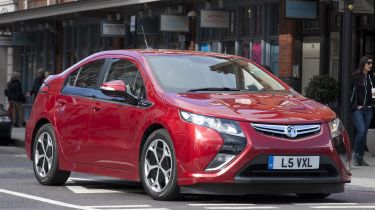What is a range extender (REx) and how do they work?
Range extenders – or extended-range electric vehicles – are a relatively uncommon type of electric car that uses a small auxiliary engine to boost range

What is a range extender? While electric, hybrid and plug-in hybrid cars are now commonplace on UK roads, and even a few hydrogen fuel-cell models have started to appear, range-extenders remain a bit of a niche curiosity.
This type of electric car has the regular one or more electric motors plus batteries, but also employs a (usually pretty small) petrol or diesel combustion engine. Sounds just like a hybrid, right? Well, yes, but the key difference is that in a range-extender, the engine never drives the car's wheels directly. It's there to purely to serve as a generator to top up the battery when it runs low.
How does a range-extender (REx) electric car work?
As mentioned above, range-extender electric cars have a battery like any other EV, and you can plug them into the mains at home or a public charging point while out and about to top this up. As long as there's charge in the battery, a range-extender drives about silently like any other EV, with the combustion engine remaining dormant.
However, if the battery charge runs out before you've had a chance to top it up again, the engine comes to life and runs at a steady rate, feeding power into the battery so the car's wheels keep turning. As it's always the electric motor turning the wheels, range-extenders feel pretty much like any other electric car to drive – the only difference is you'll hear the engine humming away in the background if it comes on.
What range-extender (REx) electric cars are available?
Range-extenders were never very common and have been rendered largely obsolete by advances in battery technology and the rapid rollout of public charging infrastructure. These days, most electric cars on sale can cover most people's daily mileage without needed to be recharged, and even if the can't, public charging points are widely available for topping up en route to your destination.
The BMW i3 was initially offered in both range-extender and pure-electric forms, but the former was discontinued long before the latter wrapped up production in mid-2022. Another range extender sold in the UK was the Chevrolet Volt (and its Vauxhall Ampera sister model, pictured top). Both have long since been discontinued.
Range-extenders have largely fallen out of favour with manufacturers, then, although in recent years some hybrid models have come to use a similar philosophy. Honda's hybrids, for example, have electric motors that drive their wheels most of the time, with their engines serving to charge a battery.
However, unlike in a range-extender, when more power is required, the engine can send power directly to the wheels. Their batteries are also quite small, so their engines tend to be on almost all the time to keep them topped up with electricity.